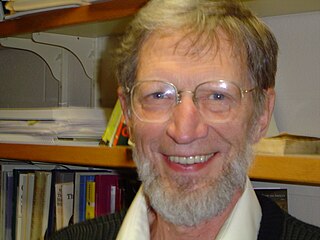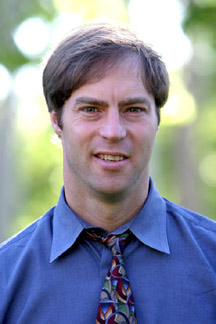| Part of a series on |
| Intelligent design |
|---|
 |
| Concepts |
| Movement |
| Campaigns |
| Authors |
| Organisations |
| Reactions |
| Creationism |
This is a list of works addressing the subject or the themes of intelligent design.
| Part of a series on |
| Intelligent design |
|---|
 |
| Concepts |
| Movement |
| Campaigns |
| Authors |
| Organisations |
| Reactions |
| Creationism |
This is a list of works addressing the subject or the themes of intelligent design.
{{cite book}}: |first= has generic name (help) An anthology of papers from the November 1996 conference of the same name, sponsored by Christian Leadership Ministries. [1] {{cite book}}: |first= has generic name (help)The concept of life having been designed or manipulated is a staple of science fiction. Aspects of Intelligent Design are explored in:
Intelligent design (ID) is a pseudoscientific argument for the existence of God, presented by its proponents as "an evidence-based scientific theory about life's origins". Proponents claim that "certain features of the universe and of living things are best explained by an intelligent cause, not an undirected process such as natural selection." ID is a form of creationism that lacks empirical support and offers no testable or tenable hypotheses, and is therefore not science. The leading proponents of ID are associated with the Discovery Institute, a Christian, politically conservative think tank based in the United States.
Irreducible complexity (IC) is the argument that certain biological systems with multiple interacting parts would not function if one of the parts were removed, so supposedly could not have evolved by successive small modifications from earlier less complex systems through natural selection, which would need all intermediate precursor systems to have been fully functional. This negative argument is then complemented by the claim that the only alternative explanation is a "purposeful arrangement of parts" inferring design by an intelligent agent. Irreducible complexity has become central to the creationist concept of intelligent design (ID), but the concept of irreducible complexity has been rejected by the scientific community, which regards intelligent design as pseudoscience. Irreducible complexity and specified complexity, are the two main arguments used by intelligent-design proponents to support their version of the theological argument from design.

William Albert Dembski is an American mathematician, philosopher and theologian. He was a proponent of intelligent design (ID) pseudoscience, specifically the concept of specified complexity, and was a senior fellow of the Discovery Institute's Center for Science and Culture (CSC). On September 23, 2016, he officially retired from intelligent design, resigning all his "formal associations with the ID community, including [his] Discovery Institute fellowship of 20 years". A February 2021 interview in the CSC's blog Evolution News announced "his return to the intelligent design arena".

Alvin Carl Plantinga is an American analytic philosopher who works primarily in the fields of philosophy of religion, epistemology, and logic.

Michael Joseph Behe is an American biochemist and an advocate of the pseudoscientific principle of intelligent design (ID).
Phillip E. Johnson was a UC Berkeley law professor, opponent of evolutionary science, co-founder of the pseudoscientific intelligent design movement, author of the "Wedge strategy" and co-founder of the Discovery Institute's Center for Science and Culture (CSC). He described himself as "in a sense the father of the intelligent design movement". He was a critic of Darwinism, which he described as "fully naturalistic evolution, involving chance mechanisms and natural selection". The wedge strategy aims to change public opinion and scientific consensus, and seeks to convince the scientific community to allow a role for theism, or causes beyond naturalistic explanation, in scientific discourse. Johnson argued that scientists accepted the theory of evolution "before it was rigorously tested, and thereafter used all their authority to convince the public that naturalistic processes are sufficient to produce a human from a bacterium, and a bacterium from a mix of chemicals."

The Center for Science and Culture (CSC), formerly known as the Center for the Renewal of Science and Culture (CRSC), is part of the Discovery Institute (DI), a conservative Christian think tank in the United States. The CSC lobbies for the inclusion of creationism in the form of intelligent design (ID) in public-school science curricula as an explanation for the origins of life and the universe while trying to cast doubt on the theory of evolution. These positions have been rejected by the scientific community, which identifies intelligent design as pseudoscientific neo-creationism, whereas the theory of evolution is overwhelmingly accepted as a matter of scientific consensus.
The intelligent design movement is a neo-creationist religious campaign for broad social, academic and political change to promote and support the pseudoscientific idea of intelligent design (ID), which asserts that "certain features of the universe and of living things are best explained by an intelligent cause, not an undirected process such as natural selection." Its chief activities are a campaign to promote public awareness of this concept, the lobbying of policymakers to include its teaching in high school science classes, and legal action, either to defend such teaching or to remove barriers otherwise preventing it. The movement arose out of the creation science movement in the United States, and is driven by a small group of proponents.

Stephen C. Meyer is an American author and former educator. He is an advocate of the pseudoscience of intelligent design and helped found the Center for Science and Culture (CSC) of the Discovery Institute (DI), which is the main organization behind the intelligent design movement. Before joining the DI, Meyer was a professor at Whitworth College. Meyer is a senior fellow of the DI and director of the CSC.
Theistic science, also referred to as theistic realism, is the pseudoscientific proposal that the central scientific method of requiring testability, known as methodological naturalism, should be replaced by a philosophy of science that allows occasional supernatural explanations which are inherently untestable. Proponents propose supernatural explanations for topics raised by their theology, in particular evolution.

Intelligent Design: The Bridge Between Science and Theology is a 1999 book by the mathematician William A. Dembski, in which the author presents an argument in support of intelligent design. Dembski defines the term "specified complexity", and argues that instances of it in nature cannot be explained by Darwinian evolution, but instead are consistent with the intelligent design. He also derives an instance of his self-declared law of conservation of information and uses it to argue against Darwinian evolution. The book is a summary treatment of the mathematical theory he presents in The Design Inference (1998), and is intended to be largely understandable by a nontechnical audience. Dembski also provides a Christian theological commentary, and analysis of, what he perceives to be the historical and cultural significance of the ideas.

The Wedge Strategy is a creationist political and social action plan authored by the Discovery Institute, the hub of the pseudoscientific intelligent design movement. The strategy was put forth in a Discovery Institute manifesto known as the Wedge Document. Its goal is to change American culture by shaping public policy to reflect politically conservative fundamentalist evangelical Protestant values. The wedge metaphor is attributed to Phillip E. Johnson and depicts a metal wedge splitting a log.
An intelligent designer, also referred to as an intelligent agent, is the pseudoscientific hypothetical willed and self-aware entity that the intelligent design movement argues had some role in the origin and/or development of life. The term "intelligent cause" is also used, implying their teleological supposition of direction and purpose in features of the universe and of living things.
The Kansas evolution hearings were a series of hearings held in Topeka, Kansas, United States from May 5 to 12, 2005 by the Kansas State Board of Education and its State Board Science Hearing Committee to change how evolution and the origin of life would be taught in the state's public high school science classes. The hearings were arranged by the Board of Education with the intent of introducing intelligent design into science classes via the Teach the Controversy method.

Neo-creationism is a pseudoscientific movement which aims to restate creationism in terms more likely to be well received by the public, by policy makers, by educators and by the scientific community. It aims to re-frame the debate over the origins of life in non-religious terms and without appeals to scripture. This comes in response to the 1987 ruling by the United States Supreme Court in Edwards v. Aguillard that creationism is an inherently religious concept and that advocating it as correct or accurate in public-school curricula violates the Establishment Clause of the First Amendment.
"A Scientific Dissent from Darwinism" was a statement issued in 2001 by the Discovery Institute, a Christian, conservative think tank based in Seattle, Washington, U.S., best known for its promotion of the pseudoscientific principle of intelligent design. As part of the Discovery Institute's Teach the Controversy campaign, the statement expresses skepticism about the ability of random mutations and natural selection to account for the complexity of life, and encourages careful examination of the evidence for "Darwinism", a term intelligent design proponents use to refer to evolution.
The evolutionary argument against naturalism (EAAN) is a philosophical argument asserting a problem with believing both evolution and philosophical naturalism simultaneously. The argument was first proposed by Alvin Plantinga in 1993 and "raises issues of interest to epistemologists, philosophers of mind, evolutionary biologists, and philosophers of religion". The EAAN argues that the combined belief in both evolutionary theory and naturalism is epistemically self-defeating. The argument for this is that if both evolution and naturalism are true, then the probability of having reliable cognitive faculties is low. This argument comes as an expansion of the argument from reason, although the two are separate philosophical arguments.

This timeline of intelligent design outlines the major events in the development of intelligent design as presented and promoted by the intelligent design movement.
Walter L. Bradley is a retired professor of engineering, old Earth creationist and an advocate of intelligent design.
The relationship between intelligent design and science has been a contentious one. Intelligent design (ID) is presented by its proponents as science and claims to offer an alternative to evolution. The Discovery Institute, a politically conservative think tank and the leading proponent of intelligent design, launched a campaign entitled "Teach the Controversy", which claims that a controversy exists within the scientific community over evolution. The scientific community rejects intelligent design as a form of creationism, and the basic facts of evolution are not a matter of controversy in science.